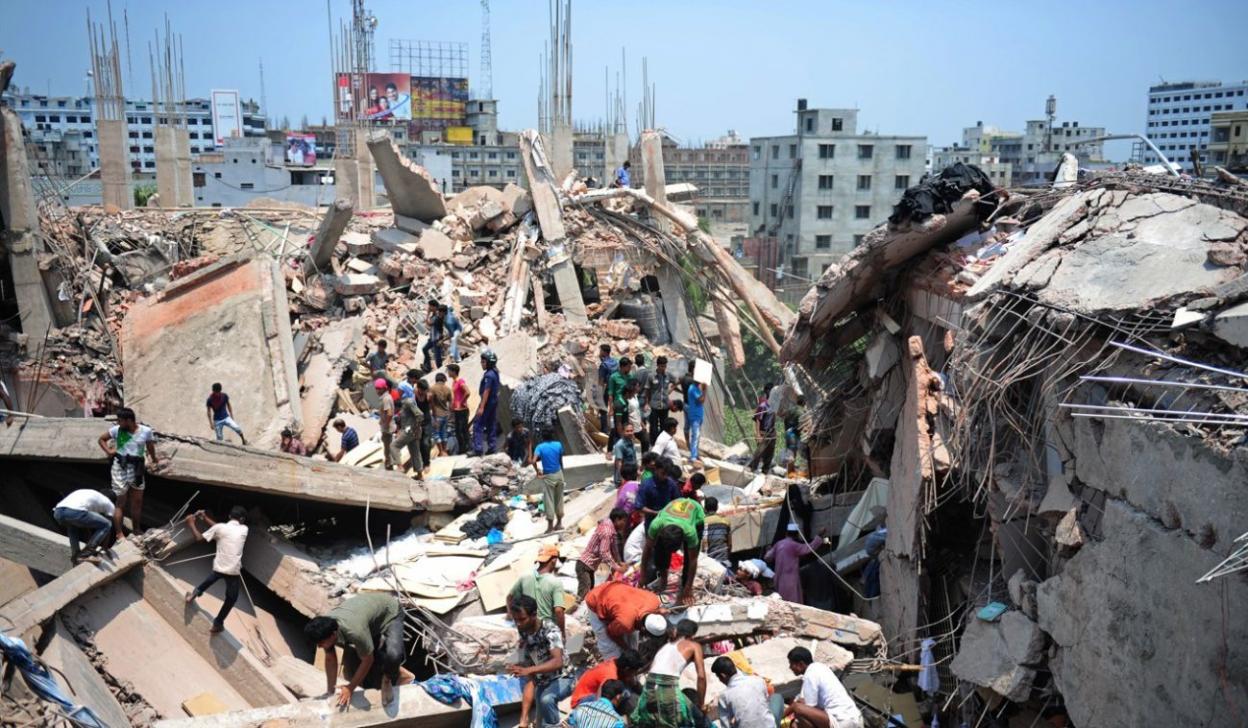Singapore-based company returns 105 of its 144 acre controversially leased-out land
The Civil Aviation Authority of Bangladesh has repossessed its 105 acres of land worth more than Tk 3,000 crore from a Singapore-based company that had been controversially awarded the lease of the land next to the Shahjalal International Airport back in 2000.
There is a plan to use the repossessed land to construct a third terminal with 32 boarding bridges at the Shahjalal airport. But it will be decided on the basis of a master plan for the airport, Caab Chairman Air Vice-Marshal Mahmud Hussain told The Daily Star.
A consultant has already been appointed for preparing the master plan, he said.
The airport now handles 5.4 million passengers annually against its capacity of eight million. Construction of the third terminal and improvement in apron and hangar facilities would help the airport double its passenger handling capacity, and there would be no need for a new airport anytime soon, said a Caab engineer wishing anonymity.
Nearly 60 aircraft can usually take off and land an hour in a busy international airport. But the number is only 10 in case of the Shahjalal airport that can utilise only 40 percent of its runway capacity, he said.
Caab’s annual earnings of Tk 800 crore would double once the new facilities are in place, said the engineer.
In 2000, the then Awami League government had controversially awarded Singapore-based IPCO a 60-year lease of 144.73 acres of prime land adjacent to the airport to construct hotels and resorts. But the company failed to comply with the conditions of the agreement.
IPCO returned 105.13 acres of land to Caab on June 2, following a lengthy negotiation and signing of a memorandum of understanding (MoU) in April.
Of the remaining 39.6 acres of land, 14 acres will be in possession of IPCO that will build a five-star and a three-star hotel with a shopping arcade on that land in the next three years.
The Caab chairman said the rest 25.6 acres would remain under Caab’s ownership. But if it wishes to lease out the land, IPCO would be its first choice.
IPCO will also pay Caab outstanding lease money of Tk 42 crore.
“We expect to sign soon the final ownership deals on the land in line with the MoU,” said Mahmud.
CANCELLATION AND REVIVAL
In 2000, IPCO set up three companies — IPCO Hotels Ltd, IPCO Development Ltd, and IPCO Resorts Ltd — and signed three Land Lease Agreement and three Build Operate Transfer deals with Caab to implement the projects.
Four Bangladeshi businessmen, including Bengal Group owner Abul Khair Litu, bought 15 percent share of IPCO’s local units.
The companies were supposed to build a five-star hotel with 500 rooms, a three-star hotel with a shopping arcade, a golf course (on 105.13 acres of land repossessed by Caab) and a country club in three phases.
In the first phase, the company was supposed to construct half of the five-star hotel by October 31, 2001. The government justified its decision to lease out the land for the hotel, saying it would facilitate the Non-Aligned Movement summit in Bangladesh in 2002, which never took place.
In the next two phases, the company was supposed to complete all other projects by 2007.
IPCO was supposed to pay Caab an annual rent of $175,000 for the first phase, $50,000 for the second and $100,000 for the third phase.
The government on August 23, 2001 cancelled the agreement as the company failed to meet the deadline for finishing the construction of the hotels and other projects, and did not pay lease rent.
But the cancellation order was withdrawn in December the same year following a change of government.
In 2003, Rajdhani Unnayan Kartripakkha (Rajuk) cancelled the designs for the proposed hotels, as those didn’t have environmental clearance. But Rajuk withdrew its order in September 2006.
Talks between IPCO and the authorities resumed during the tenure of the last caretaker government. In April 2009, the parliamentary standing committee on civil aviation and tourism ministry recommended scrapping the agreement.
As the government cancelled the agreement, IPCO filed a case with the High Court that directed Caab not to start any work on the land without consulting IPCO.
Meanwhile in 2010, Summit Group, a company owned by Civil Aviation Minister Faruk Khan, and United Group purchased the 15 percent share of IPCO’s local units from the four businessmen, and things started to change quickly.
United Group Chairman Hasan Mahmood Raja said the decision on the remaining 25.6 acres of land would be taken jointly by IPCO, the civil aviation ministry and Caab.
United Group holds 8 percent share of IPCO’s local units while Summit Group owns 7 percent, he said.
Source: The Daily Star










“Meanwhile in 2010, Summit Group, a company owned by Civil Aviation Minister Faruk Khan, and United Group purchased the 15 percent share of IPCO’s local units from the four businessmen, and things started to change quickly.
United Group Chairman Hasan Mahmood Raja said the decision on the remaining 25.6 acres of land would be taken jointly by IPCO, the civil aviation ministry and Caab.
United Group holds 8 percent share of IPCO’s local units while Summit Group owns 7 percent, he said.”
Bangladesh is a place where many of the ruling party leaders including ministers, MPs and their cronies abuse their position and influence in the government to obtain unethical and immoral business deals. Are we to believe that Mr Faruk Khan has not abused his power as a minister to award the Summit Group (owned by his family) a share in the Airport land deal?